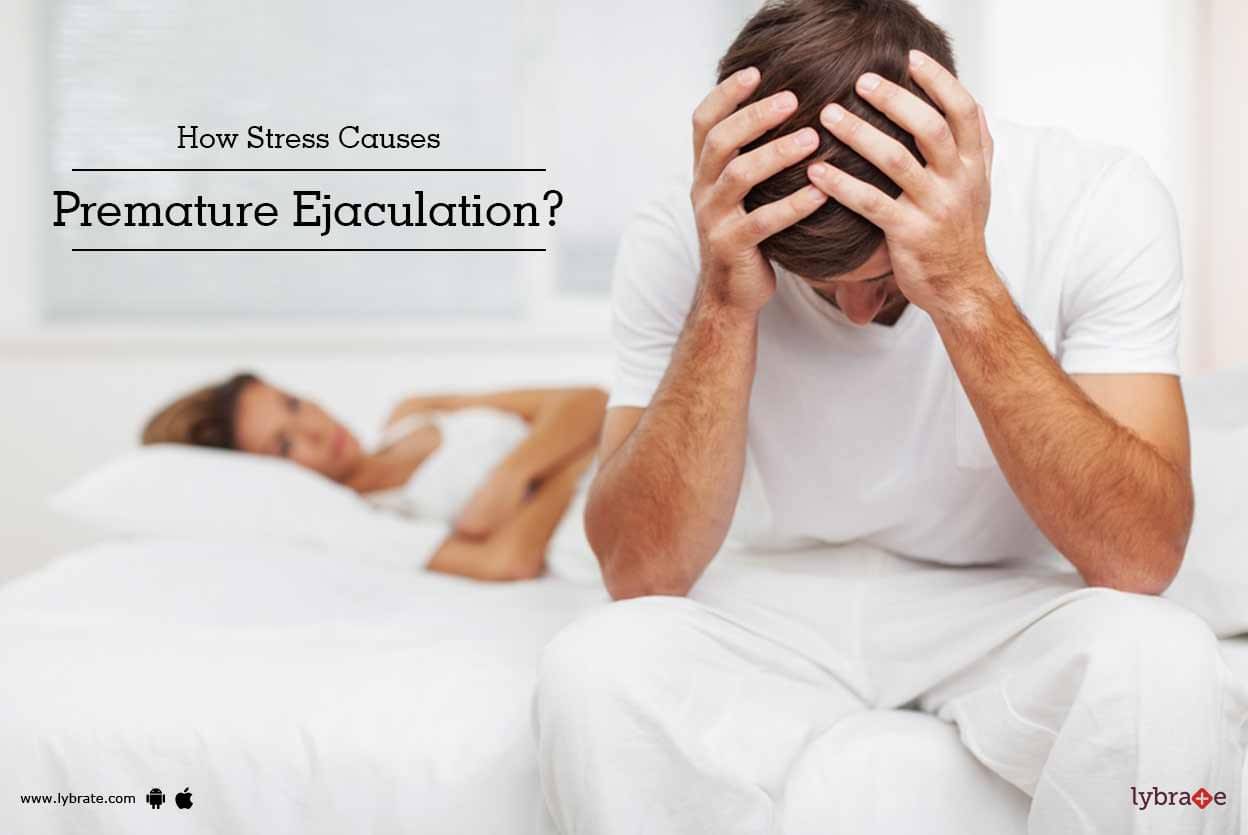What Is Premature Ejaculation?
Unintended Ejaculation Too Soon During Sexual Activity
Premature ejaculation (PE), sometimes known as rapid ejaculation, is when a man involuntarily orgasms and ejaculates before they are ready during sexual activity. Premature ejaculation may occur during foreplay, intercourse, or other forms of sexual activity.
Approximately 4% to 39% of men will experience premature ejaculation during their lifetime. It is a very common sexual dysfunction. However, if it happens frequently, it may become a larger psychological problem.
The stigma surrounding the condition can lead to stress and anxiety for many people with PE as they find it may interfere with their pleasure or the pleasure of their partner.
:max_bytes(150000):strip_icc():format(webp)/GettyImages-539260159-b6f9c382a46649faa8dfc285fed81371.jpg)
Definitions
One definition of premature ejaculation is that it is when orgasm with sperm release occurs before intercourse or less than a minute after beginning intercourse.
In 1970, the first medical definition of PE was defined as “the inability to delay ejaculation long enough for his partner to reach orgasm on 50% of intercourse attempts.” By the 1980s, PE was classified as the inability to control ejaculation and in most recent years it’s been classified as a mix of many definitions.
Sexual dysfunctions are classified as any type of issue that prevents a person from enjoying sex and affecting their livelihood.
When semen is expelled from the body, a rhythmic contraction is activated that causes spasms resulting in ejaculation. This expulsion is pleasurable and known as an orgasm. In one ejaculation, 10 to 15 contractions occur.4
Premature Ejaculation Symptoms

Premature ejaculation can be put into two categories—lifelong (primary) and acquired (secondary). Lifelong premature ejaculation is when a person experiences premature ejaculation during almost all sexual experiences.
Acquired premature ejaculation is when ejaculation has been normal but suddenly, premature ejaculation begins to occur.
Symptoms of PE include:
- Little control over ejaculation.
- Dreading sexual activity because of premature ejaculation
- Feeling embarrassed, guilty, frustrated, and confused.
While PE doesn’t have long-term side effects or complications, it can lead to stress, relationship problems, and fertility issues as it can become difficult for a couple to conceive if ejaculation occurs before intercourse.
Causes

Spinal control, the peripheral nervous system, and cerebral control are all essential for activating ejaculation. The causes of premature ejaculation may be psychological or physical.
Psychological

Psychological reasons may be the cause of acquired premature ejaculation for some people. Many studies have looked at stress and depression as either the cause or the result of premature ejaculation. Anxiety activates the sympathetic nervous system which may result in early ejaculation.7
Psychological effects can also include trauma or poor sexual knowledge which induces anxiety.6 Other disorders or issues that can impact a person’s ejaculatory response are:
- Guilt
- Self-esteem
- Humiliation
- Relationship issues
- Other psychological issues
For some men, erectile dysfunction can be tied to premature ejaculation. If someone is concerned about their performance during sex, their anxiety may result in them ejaculating quickly.
Physical

Low testosterone levels have been tied to PE in some studies, however, there is no concrete evidence that this is the ultimate cause of the sexual dysfunction.8 Testosterone plays a critical role in energy, fertility, sex, and especially in libido.
Low prolactin is another reason PE may affect people, as it is also associated with anxiety.9
Studies have shown a correlation between hyperthyroidism and PE. Many peole who have thyroid hormone disorders also experience some form of sexual dysfunction.6
One study looked at men where 50% had hyperthyroidism and premature ejaculation. After they were given treatment for the thyroid condition, these number with premature ejaculation dropped to 15%.10
Other physical concerns that may affect premature ejaculation include:
- Hormone imbalance
- Imbalance of neurotransmitters
- Infection
- Inflammation
- Genetic traits
Diagnosis
PE can be difficult to diagnose because of the subjective nature of the time it takes to reach ejaculation during sexual activity. Most people look into treatment because of the stigma and embarrassment over the issue.
Talking to a medical professional is the best way to diagnose a long-term issue. The healthcare provider can take a medical and sexual history and perform prostate and neurological tests.
If a patient does visit a medical professional, they may be asked the following questions:
- How long have you had issues ejaculating?
- What have the circumstances been like when these incidents have occurred?
- Does PE happen every time?
- Are there issues with your relationship?
- Does PE happen during masturbation?
- Are there any issues getting an erection and maintaining it?
Treatment
Premature ejaculation may go away on its own within weeks or months—it isn’t always a long-term condition. By working with a medical professional or therapist, a person can work towards relieving any stress related to the issue.
Psychotherapy can help patients gain their confidence back, reduce anxiety and stress, and learn to communicate better with a partner.
Behavior Techniques
One method of treatment is to use behavior techniques:
- The squeeze technique: This popular technique is when a person interrupts their ejaculation by squeezing the shaft of the penis for 20 seconds and resuming sexual activity. They can do this technique as many times as needed during intercourse.
- The stop-start technique: By stopping the action of intercourse or sexual activity, an individual can postpone ejaculation. This is also known as “edging” and can delay climax. A person can stop the action of sex and start again to last longer.
Medications
Prescribed medications like selective serotonin receptor inhibitors (SSRIs) or phosphodiesterase inhibitors such as Viagra (sildenafil)—especially when taken together—can be effective for PE. Studies have found that combining phosphodiesterase inhibitors and behavioral therapy is successful.
Other treatments include:
- Numbing cream
- Lidocaine spray
- Using more than one condom
- Masturbating a few hours before having sex
Natural remedies can also be considered when treating premature ejaculation:
- Ayurvedic herbal medicine
- Chinese herbal medicine like Yimusake tablets or Qilin pills
- Zinc supplements
- Dietary changes
A Word from Verywell
When premature ejaculation gets in the way of your confidence, self-esteem, and overall enjoyment pertaining to sex, it’s time to see a doctor. The stigma and stereotypes surrounding PE can be distressing for an individual but there is a way to work towards reversing the problem.
The key is to understand that PE is a very treatable and common sexual issue. Having open communication with your partner and doctor can help lead towards full recovery and fulfilling sex life.







